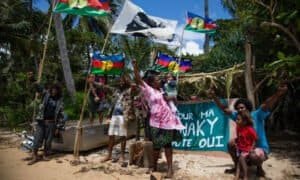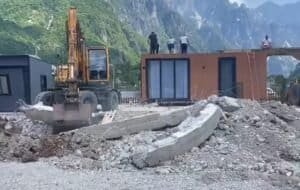Each year, Albania welcomes more tourists to its shores. But the country still lacks a basic national system for beach safety. Drownings are not just unfortunate events. They are the direct consequence of systemic negligence by state and local institutions that have prioritized expansion over protection.
🚨 The roots of the problem: beaches with no lifeguards, no signs, no accountability
Across most of Albania’s coastline, lifeguards are either absent or untrained, even though the law requires them for any licensed beach station. On public beaches — which fall under the direct responsibility of municipalities and the central government — the situation is worse. These areas are often completely unmonitored and dangerously unmarked.
There are no warning signs for strong currents, no flag systems for water conditions, and no education campaigns for beach safety. Many swimmers enter the sea unaware of the dangers they face. And when tragedy strikes, it is met with silence or blame, not action.
🏴☠️ Albania has no national beach safety system
Unlike neighboring countries such as Greece, Italy, or Croatia, Albania has no centralized strategy for preventing drownings. There is:
- no national authority to license and train lifeguards
- no monitoring of rescue operations or public risk levels
- no annual data collection or policy to address recurring causes of death
In other countries, rescue infrastructure is integrated into local tourism planning and safety education is promoted each summer. Albania, by contrast, rushes to set up sunbeds but fails to build systems that protect human lives.
🧊 Silence and institutional indifference after every fatality
After each drowning, there is no public acknowledgment of responsibility. The Ministry of Tourism speaks vaguely of “tragic events,” but offers no accountability. Local municipalities hide behind unclear distinctions between public and private beaches. Police reports often close cases with phrases like “the victim acted negligently.”
This response is not only morally unacceptable but dangerously negligent. Instead of responding with emergency plans, authorities remain focused on protecting the image of tourism rather than protecting human life.
📍 Tourism growth means nothing if it comes with more deaths
What is the point of attracting more tourists if the number of drownings increases with them? Albania cannot claim to be a serious tourism destination unless it establishes a serious coastal safety system.
Protecting visitors means prioritizing life over numbers, reservations, and seasonal profits. Until then, the country’s beaches will remain not just beautiful, but dangerously unprepared.



